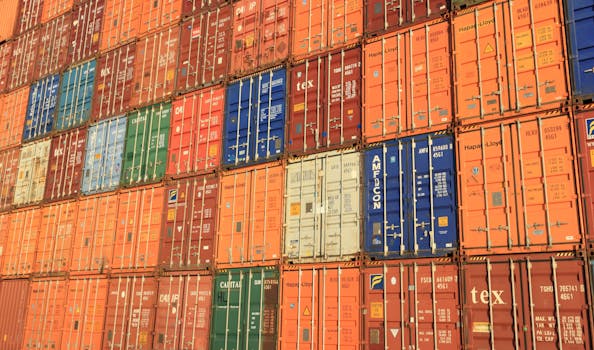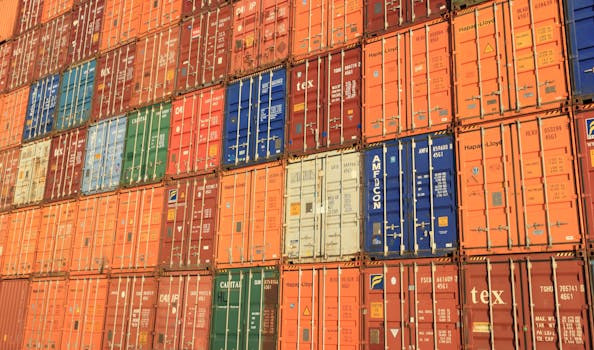Table of Contents
"Connecting the world one shipment at a time."
Introduction
Globalization has had a significant impact on cargo shipping, transforming the way goods are transported across the world. This has led to changes in shipping routes, increased competition among shipping companies, and the development of more efficient and sustainable shipping practices. In this article, we will explore the various ways in which globalization has influenced the cargo shipping industry.Technological Advancements in Cargo Shipping due to Globalization
Globalization has had a profound impact on various industries, including cargo shipping. The interconnectedness of economies and markets around the world has led to an increase in the volume of goods being transported across borders. This surge in international trade has necessitated advancements in technology within the cargo shipping industry to meet the growing demand for efficient and reliable transportation of goods. One of the key technological advancements in cargo shipping due to globalization is the development of sophisticated tracking and monitoring systems. These systems utilize GPS technology to provide real-time information on the location and status of cargo shipments. This level of visibility allows shippers to track their goods throughout the entire shipping process, from the moment they leave the warehouse to their final destination. This not only enhances the security of the cargo but also enables shippers to make informed decisions regarding routing and scheduling to optimize efficiency. In addition to tracking and monitoring systems, the advent of automation and robotics has revolutionized the way cargo is handled and transported. Automated cranes and robotic systems are now commonly used in ports and warehouses to load and unload cargo containers with speed and precision. This automation not only increases efficiency but also reduces the risk of human error, leading to safer and more reliable cargo handling operations. Furthermore, the integration of digital technologies such as blockchain has streamlined the documentation and paperwork involved in cargo shipping. Blockchain technology allows for secure and transparent record-keeping, enabling all parties involved in a shipment to access and verify important information such as bills of lading, customs documents, and payment records. This digitalization of paperwork reduces the risk of fraud and delays in the shipping process, ultimately improving the overall efficiency of cargo shipping operations. Another significant technological advancement in cargo shipping due to globalization is the development of eco-friendly shipping solutions. With increasing concerns about environmental sustainability, the cargo shipping industry has been under pressure to reduce its carbon footprint. As a result, there has been a push towards the adoption of alternative fuels and energy-efficient technologies in cargo vessels. From LNG-powered ships to wind-assisted propulsion systems, these eco-friendly solutions not only help reduce emissions but also lower operating costs for shipping companies in the long run. Overall, the impact of globalization on cargo shipping has been profound, driving the industry towards greater efficiency, reliability, and sustainability through technological advancements. From advanced tracking and monitoring systems to automation and digitalization, these innovations have transformed the way goods are transported across borders. As the global economy continues to evolve, it is likely that we will see further advancements in cargo shipping technology to meet the demands of an increasingly interconnected world.Environmental Impact of Globalization on Cargo Shipping

Globalization has had a profound impact on various industries, including cargo shipping. As the world becomes increasingly interconnected, the demand for goods to be transported across borders has grown exponentially. This has led to a significant increase in the volume of cargo being shipped around the world, which in turn has had a number of environmental implications. One of the most significant environmental impacts of globalization on cargo shipping is the increase in greenhouse gas emissions. The shipping industry is a major contributor to global carbon emissions, with cargo ships accounting for a significant portion of these emissions. The burning of fossil fuels to power these ships releases large amounts of carbon dioxide into the atmosphere, contributing to climate change. In addition to greenhouse gas emissions, cargo shipping also contributes to air pollution through the release of other harmful pollutants such as sulfur dioxide and nitrogen oxides. These pollutants can have a range of negative effects on human health and the environment, including respiratory problems, acid rain, and damage to ecosystems. The increase in cargo shipping volume has also led to other environmental concerns, such as the spread of invasive species. Ballast water, which is used to stabilize ships at sea, can contain a variety of organisms that are then released into new environments when the water is discharged. This can lead to the introduction of non-native species that can outcompete native species and disrupt ecosystems. Furthermore, the construction and maintenance of ports and shipping infrastructure can have a significant impact on coastal ecosystems. Dredging and land reclamation activities can destroy important habitats such as mangroves and wetlands, which provide valuable ecosystem services such as flood protection and carbon sequestration. Despite these environmental challenges, there are steps that can be taken to mitigate the impact of globalization on cargo shipping. One approach is to improve the efficiency of shipping operations through the use of new technologies and practices. For example, the use of more fuel-efficient engines and alternative fuels can help reduce greenhouse gas emissions, while the implementation of ballast water treatment systems can help prevent the spread of invasive species. Another important strategy is to promote sustainable shipping practices through regulations and incentives. International agreements such as the International Maritime Organization's MARPOL Convention set standards for emissions and pollution control, while initiatives such as the Green Award program provide incentives for ships that meet certain environmental criteria. In conclusion, the environmental impact of globalization on cargo shipping is significant and multifaceted. While the industry plays a crucial role in facilitating global trade and economic growth, it also poses a number of challenges in terms of environmental sustainability. By implementing measures to improve efficiency, promote sustainability, and reduce emissions, it is possible to minimize the negative impact of cargo shipping on the environment and create a more sustainable future for the industry.
